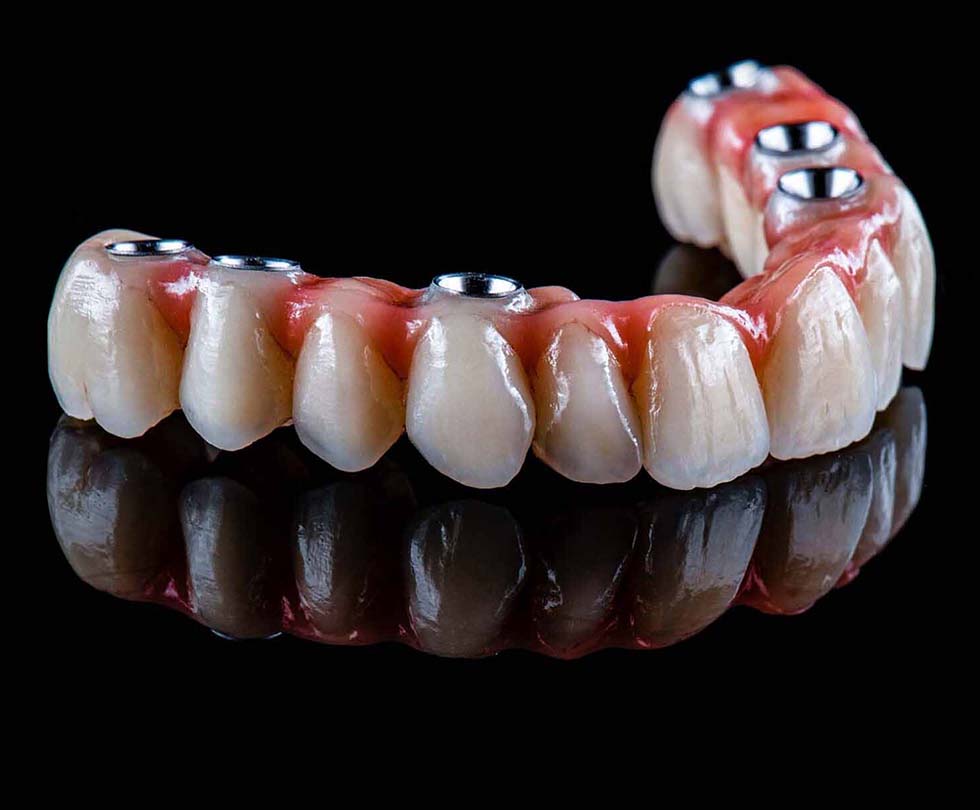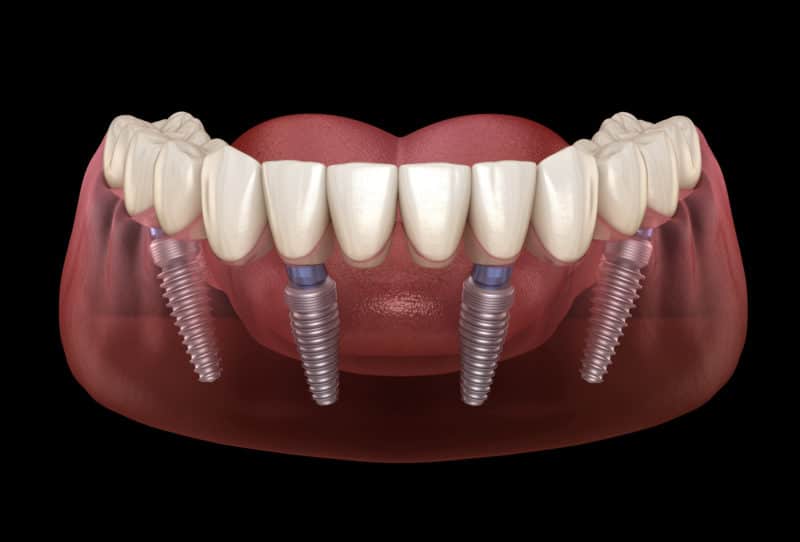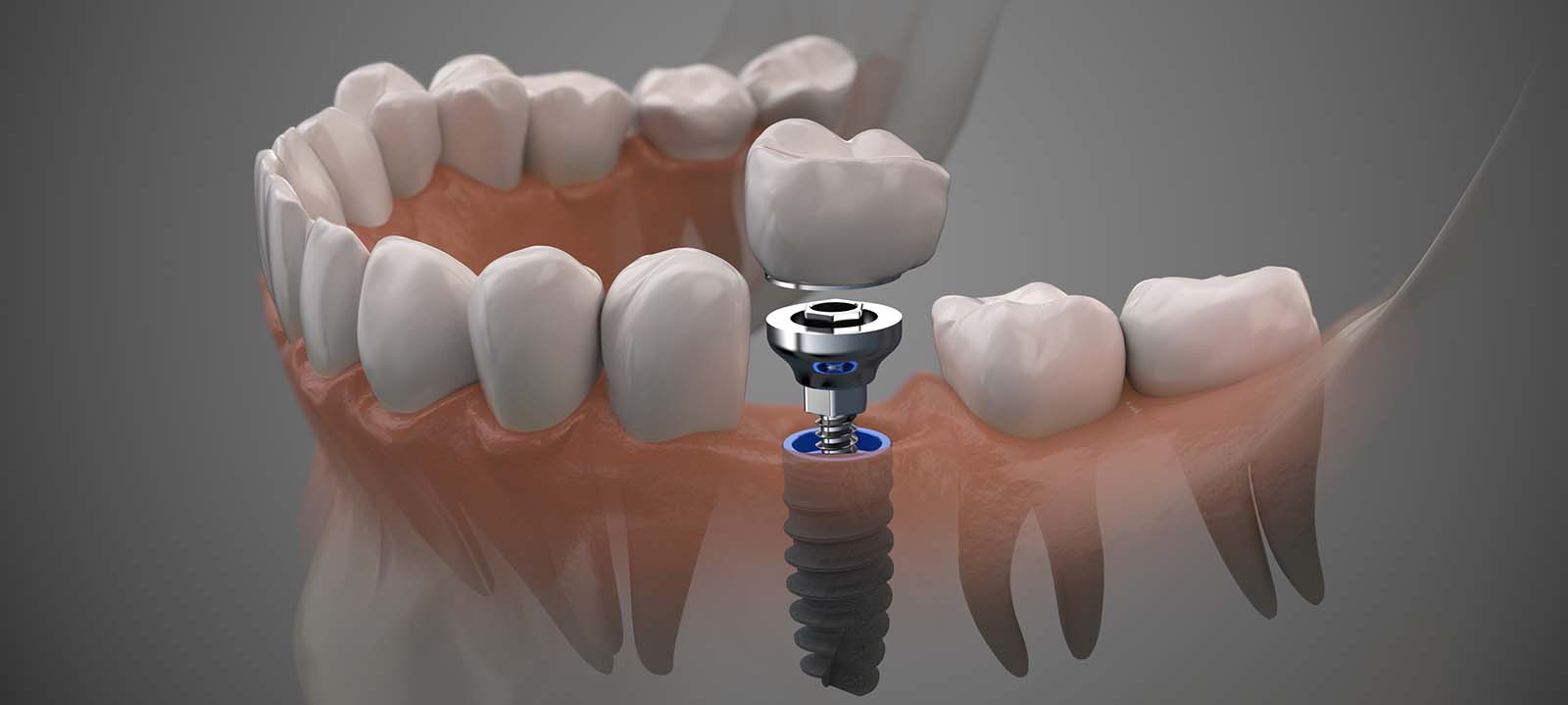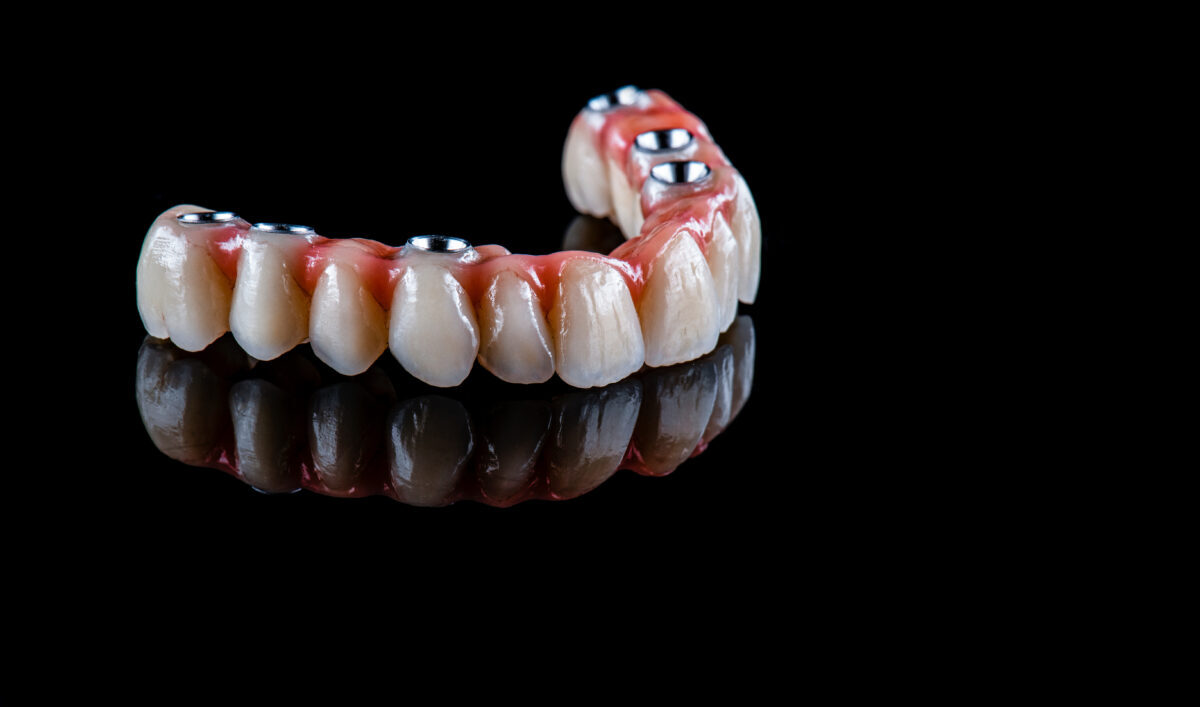Unfortunately, pain is a very real part of life. This is especially true when talking about medical interventions. Those who end up needing dental implants aren’t sure what to expect when it comes to pain and its duration following the dental implant surgery.
It’s likely that patients will experience some pain, but its severity and length varies between each person. Luckily, there are some effective ways to handle and mitigate the pain.
Are dental implants painful?
Yes, patients who undergo dental implant surgery will experience some discomfort. Since you’ll have anesthesia during the actual procedure, the pain doesn’t start until this numbness subsides. At first, you’ll most likely feel discomfort that will gradually increase.
The precise amount of discomfort and pain is wholly dependent on the number of implants and the invasiveness of the procedure. The more implants required and the longer the procedure, the greater the pain that will follow.
How long does the pain last?
It’s not easy to give an exact timeline for the pain since each patient has a different experience. Normally, you can expect the discomfort and pain to last around 10 days following the procedure. Ideally, the dentist will offer you some pain medications to ward off the pain. There’s also some swelling involved that should start to disappear after 3 to 5 days.
Here’s a rough timeline outlining what patients can expect following their surgery:
One Week Following Dental Implant Procedure
It’s typical for patients to still have discomfort a week following surgery. Be sure to follow your doctor’s instructions for recovery. It usually involves 10 days of recommendations to help reduce pain.
Two Weeks Following Dental Implant Procedure
Pain coming from the surgery should be gone at this point. If not, make sure to contact your dentist since you might have an infection.
3 to 4 Months Following Dental Implant Procedure
Any paint at this point is likely a sign of something serious. Here are some possible culprits:
- Tissue or nerve damage
- Allergic reaction
- Your mouth is rejecting the implant
- Infection
- Poor health overall
- Insufficient blood supply
- Autoimmune diseases
- Complications with additional medications
- In either of these instances, it’s important to contact a dentist right away.
- One Year or More Following Dental Plant Procedure
Patients who experience pain or discomfort a year or more after their procedure could be suffering from one of the following issues:
- Infection
- Radiation to neck or head
- Insufficient gum tissue
- Bad oral hygiene
- Teeth clenching or grinding
- Consistent smoking
Once again, it’s critical to contact a dentist immediately if you’re feeling discomfort this long after the initial procedure.
While pain is an inevitable side effect of a dental implant procedure, the discomfort should only last around a week. Anything longer could be a sign that something is really wrong. That’s why it’s important for all patients to listen to their dentist’s instructions carefully and to be in contact if something is wrong.
Issues that can lead to more pain
While a standard, issue-free dental implant surgery comes with some pain, there are other issues that can cause additional and avoidable pain. Understanding each can make it easier not only to detect what might be wrong but also give patients something to keep an eye out for following their procedure.
Unfixed Healing Cap
At times, the tiny screw used to secure the implant gets loose after the surgery. When this happens, a dentist needs to take off the cap and carefully refit it. You might experience some discomfort until the replacement is made.
Loose Implant
Some jaws don’t have sufficient bone mass, leading to a loosened dental implant. This might also lead to pain and discomfort. Similar to the unfixed healing cap, a dentist will have to take off the loose implant and replace it.
Infection
Infections can result from the surgery itself or during the healing process. Gum infections can be extremely painful and are easier to treat the earlier they’re caught.
Implant Rejection
Your body might have an adverse reaction to the implant if it’s deemed a foreign object. This results in what’s called a failed implant. The body’s negative reaction can loosen the implant, making it necessary to get a replacement.
Bone Burn
Although this isn’t as common as other complications, bone burns have happened as a result of dental implant surgery. Some patients suffer damage to their bone near the procedure site due to the extreme heat of the drill. As you can imagine, this causes significant discomfort and pain. To treat the issue, a dentist will need to take out the implant and all impacted bone.
Nerve Damage
While nerve damage is another rare cause of discomfort following dental implant surgery, it’s not unheard of. When dentists hit a nerve with their drill or place an implant too close, the patient will experience some pain. At this point, the implant needs to be taken out and replaced with another.
While there are a few other rare occurrences that could be a source of pain and discomfort following dental implant surgery, these are some of the most common. Either way, it’s critical to stay in touch with your dentist if anything feels funny or abnormal following your surgery. It’s better to handle these problems immediately before they worsen.
Tips for managing dental implant discomfort
Fortunately, you can do many things to manage the pain of your experience and even reduce the chances of experiencing any discomfort following dental implant surgery. Your dentist will most likely recommend one or a combination of some of the following options if you call about some discomfort.
Find a Good Dentist
This might sound obvious, but too many patients rush into choosing a dentist to perform their dental implant surgery. It’s never a good idea to go for the cheapest or nearest just out of convenience. You should find a Los Angele dental implants specialist with experience, great reviews, and a great price-to-quality ratio. Perhaps most importantly, you’ll only want to work with a dentist with whom you feel comfortable.
Don’t Stray From the Post-Procedure Guidelines
While you’ll be able to find hoards of information about post-surgery procedures online, you should only follow your dentist’s recommendations. It’s critical to stay on top of these guidelines in order to ensure that your mouth and entire body heal properly and timely.
Take the Proper Medications
It’s not unheard of for dentists to prescribe painkillers following the surgery in order to help patients deal with the pain. Ibuprofen is a common option. Be sure to only take what’s recommended by your dentist, but don’t be afraid to request an amended prescription of it’s not sufficient to block out the pain.
Use Ice to Numb the Pain
Ice is a great tool to use to help reduce the pain and swelling following dental implant surgery. This is especially true on the first day, but it can also be effective within the first few days. All you have to do is place the ice over your cheek and near the most sensitive area. Ice packs, ice cubes wrapped in a washcloth, and even frozen vegetable wraps can work.
Rinsing With Salt Water
Using saltwater to gently rinse your mouth can aid in reducing pain while also staving off nasty bacteria. You might experience a slight burning sensation given the wounds healing in your mouth, but the saltwater can help with the recovery process overall.
Avoid Harder Foods
Due to the sensitivity of your teeth and mouth in general, you’ll want to stick with soft and cold foods following dental implant surgery. Yogurt, smoothies, and all pureed options are a good idea.
Keep Up With Oral Hygiene
While you should always maintain consistent oral hygiene, the importance is heightened during your recovery process. It’s advisable to brush and floss at least twice per day. Listen closely to what your dentist recommends as you might have to avoid brushing the site of the surgery.
Get Enough Rest
It’s important to avoid strenuous physical activity after the surgery. You don’t want to put any undue stress on the jaw. All energy that you save for healing will help the process go much smoother and quicker.
Simple methods such as taking prescription drugs, maintaining normal oral hygiene, resting, and using ice are all easy yet effective ways to manage and mitigate pain associated with dental implants.
Summary
It shouldn’t come as a surprise that dental implant surgeries can hurt. However, you’ll be glad to know that the pain shouldn’t last more than 10 days. It’s important to contact a Los Angele dental implants specialist immediately if you experience pain or discomfort longer than this. Still, there are several ways to help reduce the pain in the meantime.
If you’re worrying about how much dental implants cost, don’t worry. We’ve been able to price our services to ensure they’re affordable for everyone while still remaining effective. Feel free to reach out to see how much one of our dental implants cost.
Just think of it as a week or so of minimal pain in exchange for an entire lifetime with stunning teeth.














